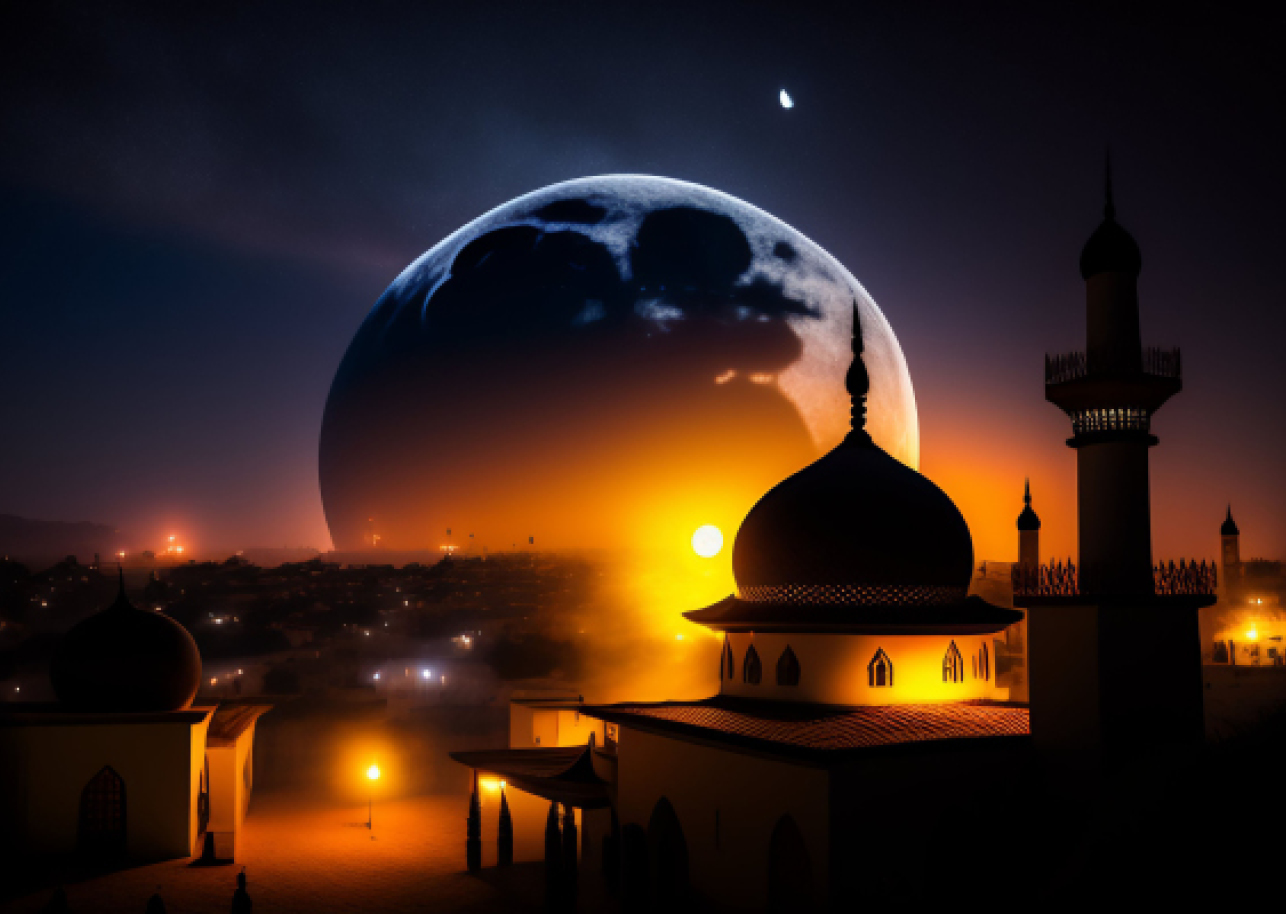As at the time this piece was submitted, it was not certain which between yesterday Friday April 21, 2023 and today, Saturday April 22, 2023 would be declared as the first day of Shawwal to mark the end of the scared month of Ramadan. In any case, whether Sallah was yesterday or today, Muslims are celebrating the peaceful end of the holy season of Ramadan.
Believing that we have given out the Zakatul-fitr enjoined on us by Islam at the end of Ramadan, it is important to remind ourselves that the successful completion of the Ramadan fast is tied to the payment of Zakatul-fitr. Anas bn Malik (RA) reports that the Prophet (SAW) said: “The Ramadan fast of believing servants of Allah (SWT) would hang between the heavens and the earth until he pays the Zakatul-fitr. When he gives it out, Allah (SWT) would grant it two wings to fly to the seventh sky where it would remain until the owner comes for it.”
Zakatul-fitr is a Sunnah that is compulsory on every Muslim, young and old, male and female, free-born as well as slave. The Zakatul-fitr of every Muslim is to be given out by the person responsible for his/her sustenance. If, for reasons of poverty a Muslim were unable to pay the Zakatul-fitr before leaving his house for the Eid prayers, he would still give it out anytime he is able to afford it. Zakatul-fitr has no waiver or substitute. It is obligatory on every Muslim.
Nonetheless, the end of Ramadan fast should not mean an end to all the righteous acts we put forth in the past one month. Let us be sincere in our faith by resolving to continue with all the virtuous deeds we carried out during Ramadan. Let us also vow to continue to eschew every evil act we avoided during Ramadan. Eidul-Fitr should not be seen as an occasion for us to go back to our old sinful life of envy, mischief, betrayal, telling lies, backbiting, cheating, forgery, etc. Resuming this kind of unholy life only makes us hypocrites.
- Only opposition parties will say Buhari’s eight years is a failure – Garba Shehu
- Please Forgive me, Ganduje begs Kano people
Given the hard economic situation in the country, this column appeals to custodians of the home-fronts to understand with their husbands where funds were not provided for the usual Sallah dresses or meals. Let us come to terms with the realities of our time. Let us not allow needless materialism to ruin the pleasurable ambiance that comes along with the Eid period. Against the wishes of the country’s battered economy, let us wear smiles on our faces. The Eid is a time for celebrating the favours of Allah (SWT). Even if it were not possible for us to take pap on the Eid day, there are several reasons for which we must give thanks to Allah. We should give gratitude to Allah that we are not on a hospital bed, in a kidnapper’s den, or in an Internally Displaced Persons (IDP) camp.
The Eid (or Sallah) is a period for us to reflect on the essence of life. If anyone doubts the vulnerability of this temporal world, let him ask after Prophet Sulaiman (AS) and the efficacies of his commands over mankind and Jinn. Today, Prophet Sulaiman (AS) is no more. Where is Dhul-Qarnayn; a man who had everything called wealth on earth? Today, he is no more. Ask of Namruzu bn Kan’an (upon whom is Allah’s curse) who was so strong and influential that he became the first “heartless oppressor” on earth. Today, he is no more. Where also are the companions of the Prophet (SAW) some of whom were granted special ‘tickets to Heaven’ here on earth? Yet, they are not here today. If you are still in doubts about how futile and vain this world is, ask yourself about your own great grandparents. Where are they?
The message of this column on the occasion of this year’s Eidul-fitr is for believer to put Allah (SWT) first in whatever they do or say irrespective of time, place and circumstance. Whether as scholars or followers, let us strive to be guided by the principles of our religion. Let our words and actions be guided by Qur’an and sunnah of the Prophet (SAW) to enable us to overcome sentiments. Let us allow our conscience to keep a close watch over our reason when we subject our reason to the interrogation of conscience.
We encourage believers, after they might have taken some rest from the sleepless nights they spent in devotion during the last ten days of Ramadan, to observe six days of voluntary fast in the Islamic lunar month of Shawwal. The observance of the six days of fasting in Shawwal is not compulsory. As a prophetic practice, Muslims are only encouraged to observe it. The six days of voluntary fast (otherwise called Sittu Shawwal in Islamic literature) can be observed consecutively or intermittently, as may be convenient for an individual. Imam Muslim (RA) reports on the authority of Abu Ayyub that the Prophet (SAW) said “…Whoever follows Ramadan (fast) with six days of (of fasting) in Shawwal would be as if he had fasted a whole year”.
While we pray that Allah (SWT) forgives our sins and accepts all our acts of devoution in the just ended Ramadan, we also pray that He counts us among His distinguished servants in the same way He (SWT) singled out Prophet Muhammad (SAW) amongt prophets, Qur’an among books, Ka’bah among Houses, Ramadan among months, Lailat ul Qadr among nights and Friday among days. May Allah (SWT) accept our Ramadan fast and all the acts of worship we put forth in this holy month of Ramadan, amin.
Barka da Sallah!

 Join Daily Trust WhatsApp Community For Quick Access To News and Happenings Around You.
Join Daily Trust WhatsApp Community For Quick Access To News and Happenings Around You.


